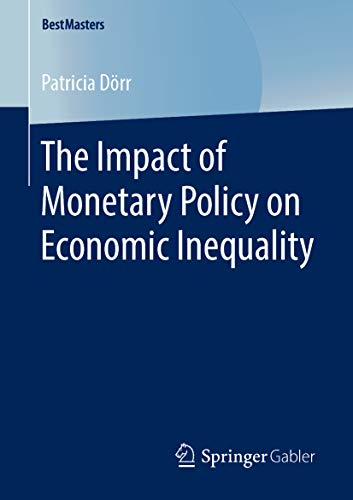Ahmedabad
(Head Office)Address : 506, 3rd EYE THREE (III), Opp. Induben Khakhrawala, Girish Cold Drink Cross Road, CG Road, Navrangpura, Ahmedabad, 380009.
Mobile : 8469231587 / 9586028957
Telephone : 079-40098991
E-mail: dics.upsc@gmail.com

Impact of Monetary policy on Inequality
News: RBI hopes that a higher EMI on an existing loan or a costlier new loan would dissuade enough people from borrowing money to fund future economic activity.
Background:
Many of you might have noticed that since May last year, your existing EMIs for home loans, car loans or loans for business have been going up quite rapidly. This is because RBI has been repeatedly raising something called the repo rate.
What is Repo Rate?
The repo rate is the rate at which the RBI lends money to the banking system. A hike in repo implies the banks and other financial institutions charge higher interest rates to you.
What are pros of raising interest rates?
It will help contain inflation as higher EMI would dissuade enough people from borrowing money to fund future economic activity which will result slowdown in demand for money → bring down inflation → “too much money chasing too few goods”.
Raising rates is, in no uncertain terms, a blunt instrument. It achieves the goal of containing prices by killing growth and employment. Many have questioned this approach in the past.
What are cons of raising interest rates?
Hike per se cannot improve the supply of those goods and services
Prevent the “second-order effects” of high inflation → refer to a spike in people’s expectation of future inflation
Limit India’s economic expansion and make unemployment worse
A contractionary/tighter monetary policy (higher interest rates) increases inequality in an economy.
Does bringing down interest rates reduces inequality?
From the 2008 Global Financial Crisis until the war between Russia and Ukraine, most central banks practiced an expansionary/loose monetary policy → low-interest rates → flooding the economy with additional money → spurring economic activity.
But, there was growing criticism that low-interest rates were leading to higher wealth inequalities.
Here’s how When interest rates are low → savers barely get any rewards (save-you-lose) → most of the wealth creation happens in the stock markets → stocks are mostly owned by the rich (invest-you-win).
What should be the ideal approach?
Widening inequalities is a very long-term trend, which depends on deep structural changes in any economy such as globalization, technological progress, demographic trends etc.
A properly managed monetary policy promotes greater economic stability and prosperity for the economy as a whole, by Mitigating the effects of recessions on the labour market and Keeping inflation low and stable.
There is the need to rely on fiscal policy (taxes and government spending programs) and policies aimed at improving workers’ skills to address distributional concerns.

Address : 506, 3rd EYE THREE (III), Opp. Induben Khakhrawala, Girish Cold Drink Cross Road, CG Road, Navrangpura, Ahmedabad, 380009.
Mobile : 8469231587 / 9586028957
Telephone : 079-40098991
E-mail: dics.upsc@gmail.com
Address: A-306, The Landmark, Urjanagar-1, Opp. Spicy Street, Kudasan – Por Road, Kudasan, Gandhinagar – 382421
Mobile : 9723832444 / 9723932444
E-mail: dics.gnagar@gmail.com
Address: 2nd Floor, 9 Shivali Society, L&T Circle, opp. Ratri Bazar, Karelibaugh, Vadodara, 390018
Mobile : 9725692037 / 9725692054
E-mail: dics.vadodara@gmail.com
Address: 403, Raj Victoria, Opp. Pal Walkway, Near Galaxy Circle, Pal, Surat-394510
Mobile : 8401031583 / 8401031587
E-mail: dics.surat@gmail.com
Address: 303,305 K 158 Complex Above Magson, Sindhubhavan Road Ahmedabad-380059
Mobile : 9974751177 / 8469231587
E-mail: dicssbr@gmail.com
Address: 57/17, 2nd Floor, Old Rajinder Nagar Market, Bada Bazaar Marg, Delhi-60
Mobile : 9104830862 / 9104830865
E-mail: dics.newdelhi@gmail.com